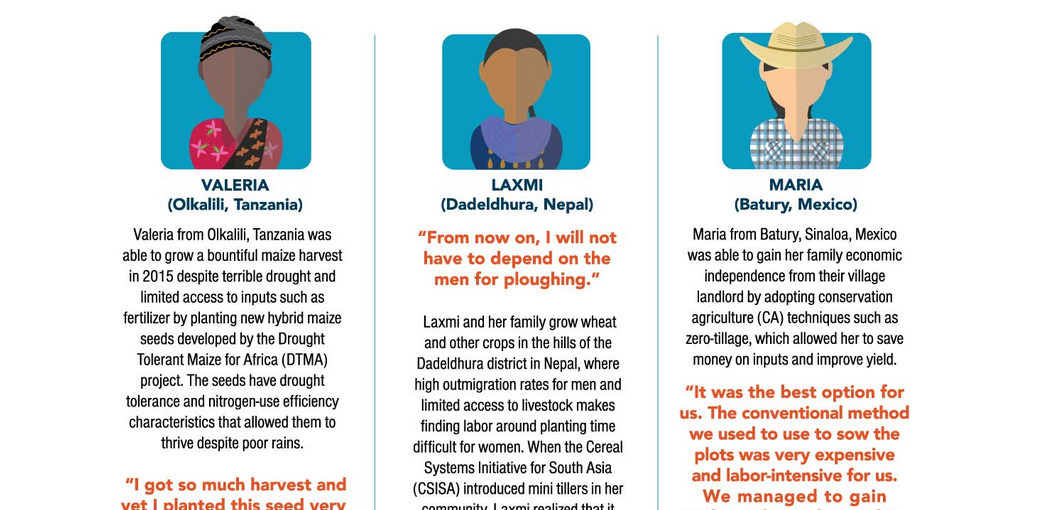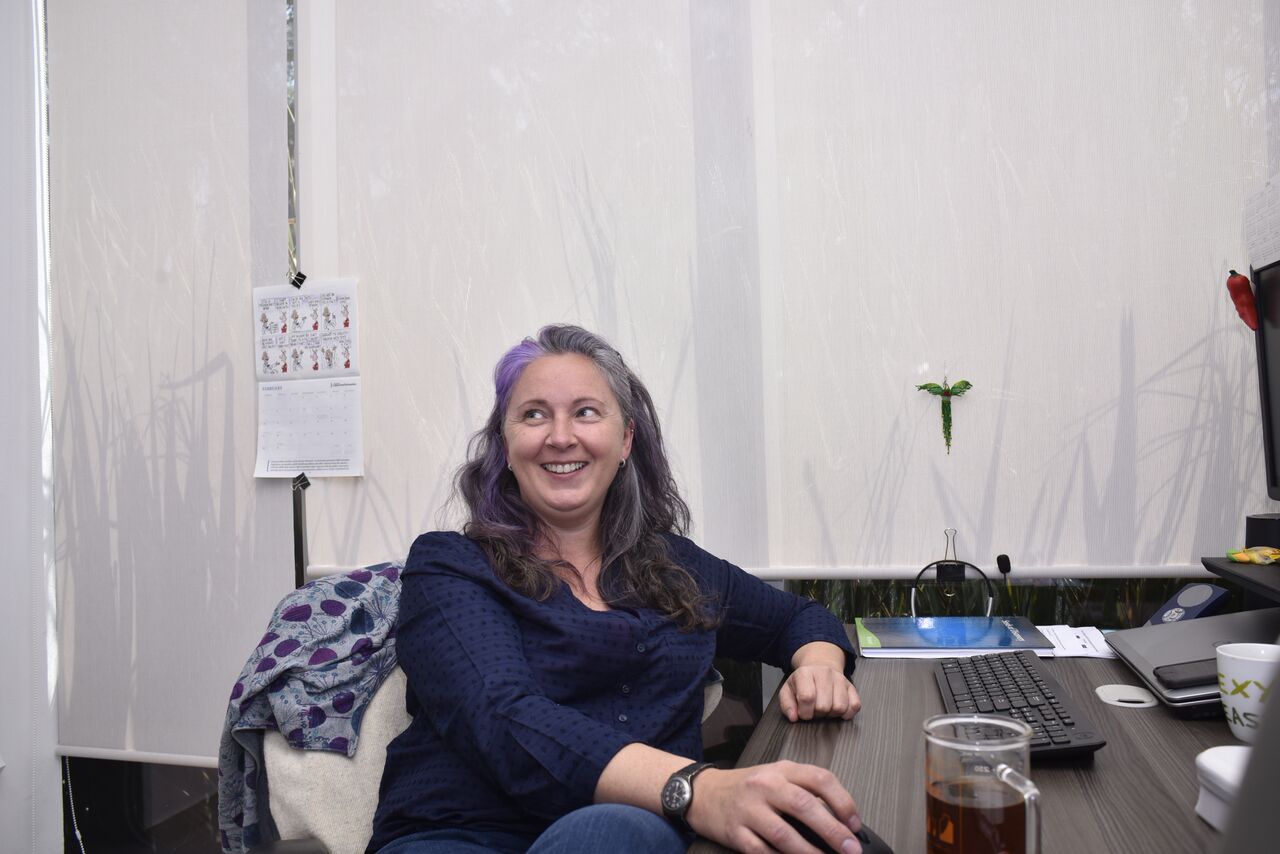Gender equality, youth and social inclusion
Gender and other social differences such as age, wealth and ethnicity, have an enormous influence upon the success of agricultural interventions. To ensure equitable impacts and benefits to rural people, CIMMYT emphasizes inclusive research and development interventions. Starting with the collection of data on gender and social differences, efforts are underway to address these gaps and ensure equitable adoption of technologies and practice. This includes working towards gender-equitable control of productive assets and resources; technologies that reduce women’s labor; and improved capacity of women and youth to participate in decision-making.
A woman for wheat: Maricelis Acevedo takes on new role
 Gender equality, youth and social inclusion
Gender equality, youth and social inclusion
Maricelis Acevedo, newly appointed associate director for science for the Delivering Genetic Gain in Wheat project left her island home of Puerto Rico in 2003 to pursue a career as a pathologist and has been traveling the world ever since.
At 50-year mark, CIMMYT scientists strive for gender equity
 Gender equality, youth and social inclusion
Gender equality, youth and social inclusion
Efforts to meet agricultural needs of women farmers to bolster global food security took shape in CIMMYT’s early days.
Participatory approaches to gender in agricultural development
 Gender equality, youth and social inclusion
Gender equality, youth and social inclusion
For gender specialist Mulunesh Tsegaye participatory approaches are the best way of ensuring agricultural development projects are responsive to gender dynamics.
Reducing the gender gap in agriculture
 Gender equality, youth and social inclusion
Gender equality, youth and social inclusion
To mark International Women’s Day 2016, CIMMYT created an infographic to highlight the importance of reducing the gender gap in agriculture.
Moving beyond agriculture’s gender status quo
 Gender equality, youth and social inclusion
Gender equality, youth and social inclusion
We have to commit to also include women and others who were largely overlooked in agriculture in the past.
A granny’s boundless resilience and strength, a pillar for women maize farmers
 Gender equality, youth and social inclusion
Gender equality, youth and social inclusion
Women play a major role in African agriculture. Purity Wanjiku, of Kenya, is a pillar for women in her village who depend on her land to grow food for their families.
Q+A: Ignore preconceptions, stake claim on science, CIMMYT’s Natalia Palacios tells women, girls
 Gender equality, youth and social inclusion
Gender equality, youth and social inclusion
Discrimination in the science sector remains a significant challenge to achieving gender balance in education and professional research, said Natalia Palacios, a top maize researcher.
Q+A: How women and girls can succeed in science, according to CIMMYT’s Sarah Hearne
 Gender equality, youth and social inclusion
Gender equality, youth and social inclusion
Gender balance is science is imperative to obtain the best results said CIMMYT scientist Sarah Hearne on the International Day of Women and Girls in Science 2016.
Inaugural Paula Kantor Award recognizes work on agriculture, gender, improved diets
 Gender equality, youth and social inclusion
Gender equality, youth and social inclusion
Post-doctoral fellow Soumya Gupta is the winner of the inaugural Paula Kantor Award for Excellence in Field Research, the International Centre for Research on Women announces.
Can maize help farmers in Odisha, India, cope with climate change?
 Climate adaptation and mitigation
Climate adaptation and mitigation
Increasing drought and low rainfall are leading many rice farmers in India’s plateau region of Odisha to start cultivating a crop that requires less water, has lower input costs and earns farmers greater profit – maize.
Gender bias may limit uptake of climate-smart farm practices, study shows
 Climate adaptation and mitigation
Climate adaptation and mitigation
Farmer education programs that fail to address traditional gender roles may sideline women, limiting use of conservation agriculture techniques, reducing their ability to fight climate change.
African maize farmers get support to mitigate impact of poor soils
 Gender equality, youth and social inclusion
Gender equality, youth and social inclusion
As the global community marks World Soil Day, African smallholder farmers are contending with low yields due to low-fertility soils prevalent in most parts of sub-Saharan Africa, affecting food security for 300 million people.
CIMMYT encourages women farmers in Pakistan to grow their own wheat
 Gender equality, youth and social inclusion
Gender equality, youth and social inclusion
New findings on gender gap in conservation agriculture
 Gender equality, youth and social inclusion
Gender equality, youth and social inclusion
Interview with Clare Stirling, co-author of a new paper, reveals almost no conservation agriculture studies consider gender and gender relations as a factor that may explain low adoption rates.

